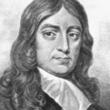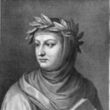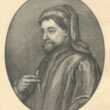The Purgatorio (Barnes & Noble Classics Series)
(Libby/OverDrive eBook, Kindle)
Bondanella, Julia Conaway Author of introduction, etc., Author of introduction, etc.
Bondanella, Peter Author of introduction, etc., Author of introduction, etc.
Longfellow, Henry Wadsworth Translator
Available Platforms
Description
More Details
Excerpt
Similar Titles From NoveList
Similar Authors From NoveList
Published Reviews
Booklist Review
If any testimony to the undiminished power of Dante's Divine Comedy was required, the fact that two such distinguished American poets as Robert Pinsky and W. S. Merwin have translated it into contemporary English seven centuries after its creator's death would be evidence enough. Merwin, a versatile and prolific poet and a sensitive, multilingual translator, who has demonstrated his gift for writing long, narrative poems in The Folding Cliffs (1998), chose to focus on the central section of Dante's epic. The "Purgatorio" is the only section to take place on Earth, and it is also the most human and hopeful. In his introduction, Merwin confides that he has been reading Dante since his adolescence, and his reverence for the poet, his erudition, and the incredible elasticity and naturalness of his translation render this masterpiece (presented in its original Italian on facing pages) fresh and radiant. Not only does Merwin succeed in capturing the poignant drama of the quest, he makes Dante's concerns and artistry not only relevant to life now but invaluable. --Donna Seaman
Publisher's Weekly Review
Forty years of producing highly reliable renderings of French and Spanish poetry and drama have culminated in what is bound to be hailed as Merwin's grandest translational accomplishment. Following on the heels of last year's The River Sound and the verse-novel The Folding Cliffs comes this deft and smooth interpretation of Dante's "second kingdom in which the human spirit is made clean/ and becomes worthy to ascend to Heaven." It is only fitting that a poet so absorbed in environmental concerns engage this most earthen section of the Commedia, with its suffering characters and unkind landscape bringing into view sharpened images of ancient and medieval political, moral and erotic life. At the book's center, love's visionary force is revealed in the simplest declarative tone: "Neither Creator nor creature ever," Virgil instructs the wandering pilgrim, "was without love, my son, whether/ natural or of the mind, and you know this." Virgil's steady tutelage reaches its pinnacle in canto 22, where Statius quotes his messianic eclogue and Dante-as-poet absorbs lessons about writing poetry by overhearing their talk. Soon after his guide's dramatic departure, Dante's focus on nature gives way to the transcendent Beatrice. At its best, Merwin's characteristically open-ended syntax allows him to capture the charged encounter's troubling, if not terribly visceral, effects: "so I broke under that heavy burden,/ with tears and sighs out of me pouring,/ and my voice collapsed as it was leaving." This translation is something of a companion volume to Robert Pinsky's Inferno in the many ways it supercedes in elegance those of Singleton and Sinclair, which had been the last century's standards. (Apr.) FYI: Also in April, Copper Canyon will issue The First Four Books of Poems by Merwin, which includes his 1952 Yale Younger Poets volume, A Mask for Janus ($16 256p ISBN 1-55659-139-X). (c) Copyright PWxyz, LLC. All rights reserved
Kirkus Book Review
This is the central volume, in terms of both its place and prominence, of the triptych of Dante's Divine Comedy. It seems to be a current trend to commission contemporary poets and translators to breathe new life into classical works with facing-page translations of the original texts'Dante's Inferno was similarly translated just two years ago'and it is an idea that makes a good deal of sense, for who is better qualified to strip the original works of their layers of glosses and scholarly obfuscations than a poet who can simultaneously pay obeisance to both the letter and the spirit of the work? Merwin is himself a poet of some renown, regarded not only for his verse but also for his prose and his previous works of translation (among them, The Song of Roland and The Poem of the Cid). He has received many distinguished awards, including the Pulitzer Prize, the Bollingen Prize, and a fellowship in the Academy of American Poets. One might wonder what relevance Dante's work of sin, repentance, and salvation has in an age that shuns responsibility for personal actions: Merwin himself suggests that any poetic work, unless consigned to an ash heap of obscurity, will be rediscovered and reinterpreted in every age until it becomes ``increasingly foreign to those horizons of human history that fostered the original images and references.'' Yet these are signs of a poetic work's vitality, not its morbidity. Arguably Merwin's most ambitious translation project to date, and the result is fresh and vibrant, as revelatory as a newly restored fresco.
Booklist Reviews
If any testimony to the undiminished power of Dante's Divine Comedy was required, the fact that two such distinguished American poets as Robert Pinsky and W. S. Merwin have translated it into contemporary English seven centuries after its creator's death would be evidence enough. Merwin, a versatile and prolific poet and a sensitive, multilingual translator, who has demonstrated his gift for writing long, narrative poems in The Folding Cliffs (1998), chose to focus on the central section of Dante's epic. The "Purgatorio" is the only section to take place on Earth, and it is also the most human and hopeful. In his introduction, Merwin confides that he has been reading Dante since his adolescence, and his reverence for the poet, his erudition, and the incredible elasticity and naturalness of his translation render this masterpiece (presented in its original Italian on facing pages) fresh and radiant. Not only does Merwin succeed in capturing the poignant drama of the quest, he makes Dante's concerns and artistry not only relevant to life now but invaluable. ((Reviewed March 15, 2000)) Copyright 2000 Booklist Reviews
Publishers Weekly Reviews
Forty years of producing highly reliable renderings of French and Spanish poetry and drama have culminated in what is bound to be hailed as Merwin's grandest translational accomplishment. Following on the heels of last year's The River Sound and the verse-novel The Folding Cliffs comes this deft and smooth interpretation of Dante's "second kingdom in which the human spirit is made clean/ and becomes worthy to ascend to Heaven." It is only fitting that a poet so absorbed in environmental concerns engage this most earthen section of the Commedia, with its suffering characters and unkind landscape bringing into view sharpened images of ancient and medieval political, moral and erotic life. At the book's center, love's visionary force is revealed in the simplest declarative tone: "Neither Creator nor creature ever," Virgil instructs the wandering pilgrim, "was without love, my son, whether/ natural or of the mind, and you know this." Virgil's steady tutelage reaches its pinnacle in canto 22, where Statius quotes his messianic eclogue and Dante-as-poet absorbs lessons about writing poetry by overhearing their talk. Soon after his guide's dramatic departure, Dante's focus on nature gives way to the transcendent Beatrice. At its best, Merwin's characteristically open-ended syntax allows him to capture the charged encounter's troubling, if not terribly visceral, effects: "so I broke under that heavy burden,/ with tears and sighs out of me pouring,/ and my voice collapsed as it was leaving." This translation is something of a companion volume to Robert Pinsky's Inferno in the many ways it supercedes in elegance those of Singleton and Sinclair, which had been the last century's standards. (Apr.) FYI: Also in April, Copper Canyon will issue The First Four Books of Poems by Merwin, which includes his 1952 Yale Younger Poets volume, A Mask for Janus ($16 256p ISBN 1-55659-139-X). Copyright 2000 Cahners Business Information.
Reviews from GoodReads
Citations
Alighieri, D., Bondanella, J. C., Bondanella, P., & Longfellow, H. W. (2009). The Purgatorio (Barnes & Noble Classics Series) . Barnes & Noble Classics.
Chicago / Turabian - Author Date Citation, 17th Edition (style guide)Dante Alighieri et al.. 2009. The Purgatorio (Barnes & Noble Classics Series). Barnes & Noble Classics.
Chicago / Turabian - Humanities (Notes and Bibliography) Citation, 17th Edition (style guide)Dante Alighieri et al.. The Purgatorio (Barnes & Noble Classics Series) Barnes & Noble Classics, 2009.
Harvard Citation (style guide)Alighieri, D., Bondanella, J. C., Bondanella, P. and Longfellow, H. W. (2009). The purgatorio (barnes & noble classics series). Barnes & Noble Classics.
MLA Citation, 9th Edition (style guide)Alighieri, Dante, Julia Conaway Bondanella, Peter Bondanella, and Henry Wadsworth Longfellow. The Purgatorio (Barnes & Noble Classics Series) Barnes & Noble Classics, 2009.
Copy Details
| Collection | Owned | Available | Number of Holds |
|---|---|---|---|
| Libby | 1 | 1 | 0 |





































